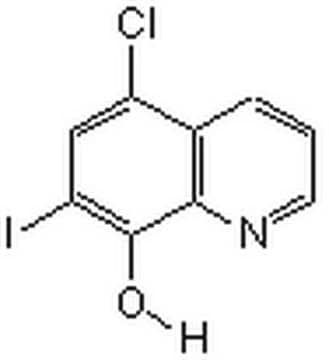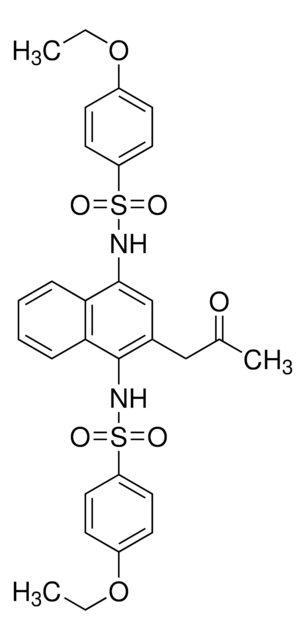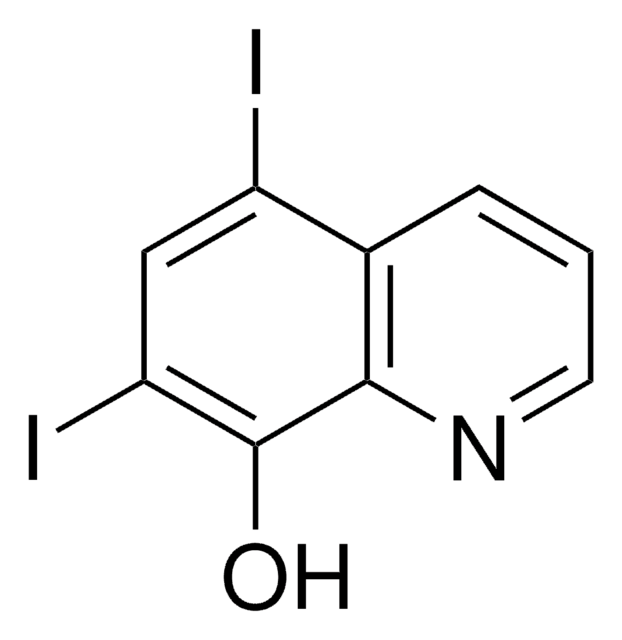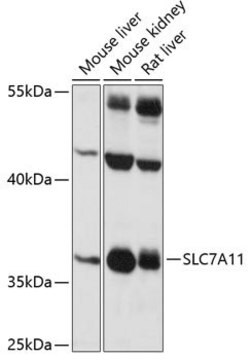Y0000364
Clioquinol
European Pharmacopoeia (EP) Reference Standard
Sinonimo/i:
5-Chloro-7-iodo-8-quinolinol, 5-Chloro-8-hydroxy-7-iodoquinoline, Clioquinol, Iodochlorhydroxyquin
About This Item
Prodotti consigliati
Grado
pharmaceutical primary standard
Famiglia di API
clioquinol
Produttore/marchio commerciale
EDQM
applicazioni
pharmaceutical (small molecule)
Formato
neat
Temperatura di conservazione
2-8°C
Stringa SMILE
Oc1c(I)cc(Cl)c2cccnc12
InChI
1S/C9H5ClINO/c10-6-4-7(11)9(13)8-5(6)2-1-3-12-8/h1-4,13H
QCDFBFJGMNKBDO-UHFFFAOYSA-N
Cerchi prodotti simili? Visita Guida al confronto tra prodotti
Descrizione generale
Applicazioni
Confezionamento
Altre note
Prodotti correlati
Avvertenze
Danger
Indicazioni di pericolo
Consigli di prudenza
Classi di pericolo
Acute Tox. 3 Oral - Eye Irrit. 2 - Skin Irrit. 2 - Skin Sens. 1
Codice della classe di stoccaggio
6.1C - Combustible acute toxic Cat.3 / toxic compounds or compounds which causing chronic effects
Classe di pericolosità dell'acqua (WGK)
WGK 3
Choose from one of the most recent versions:
Certificati d'analisi (COA)
Sorry, we don't have COAs for this product available online at this time.
If you need assistance, please contact Servizio Clienti
Possiedi già questo prodotto?
I documenti relativi ai prodotti acquistati recentemente sono disponibili nell’Archivio dei documenti.
Il team dei nostri ricercatori vanta grande esperienza in tutte le aree della ricerca quali Life Science, scienza dei materiali, sintesi chimica, cromatografia, discipline analitiche, ecc..
Contatta l'Assistenza Tecnica.





![2-[4-[(7-Chloro-4-quinolinyl)amino]pentyl] amino ethanol British Pharmacopoeia (BP) Reference Standard](/deepweb/assets/sigmaaldrich/product/structures/390/362/61c88f5c-c373-4489-9234-6bc366e641a7/640/61c88f5c-c373-4489-9234-6bc366e641a7.png)
